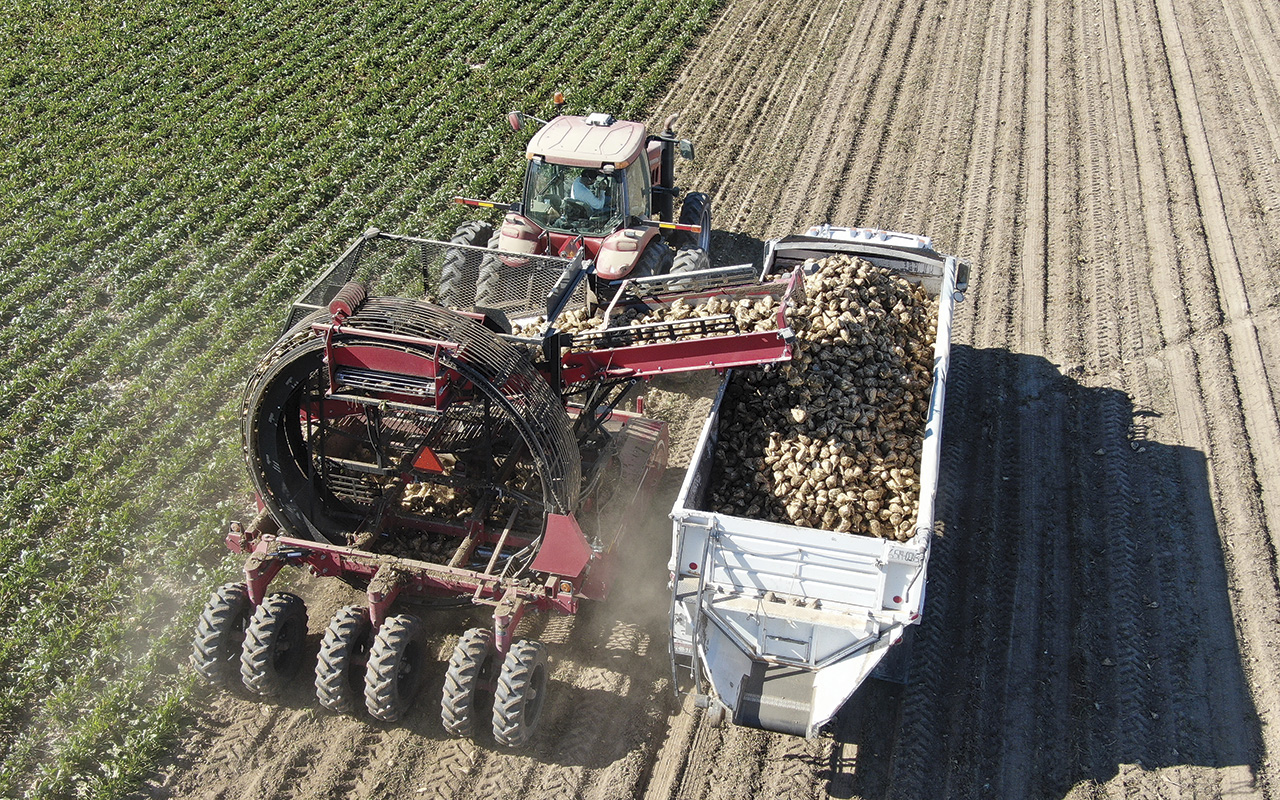Did you know that the American sugar industry contributes $23.3 billion annually to the U.S. economy and employs more than 151,000 people? With over 90 sugar factories, mills, refineries and storage facilities, the domestic industry is well-positioned to supply a safe, affordable, sustainable and high-quality product to the American consumer.
Idaho ranks second nationally in the production of sugarbeets, and sugarbeets are the state’s fourth-most-valuable crop, according to the Idaho State Department of Agriculture. Paul, Idaho, is home to the largest sugarbeet factory in the U.S. and has the capacity to slice up to 17,900 tons of sugarbeets per day. Our sugarbeet growing region stretches from Blackfoot, Idaho, to Nyssa, Oregon, and up to Prosser, Washington.
Despite supply chain issues during the COVID-19 pandemic, you may have noticed sugar was always on the shelves. The sugar industry shifted from bulk and large packages to about 50 million 4-pound sugar bags for grocery stores. Thanks to a nationwide supply network, we were able to serve customers with just-in-time delivery.
What makes the sugar industry successful? The answer is simple: 11,000 sugar farmers and their families across the country. In Idaho, we have over 600 sugarbeet growers. They are a passionate and dedicated group. One key to their success is good public policy.

There are over 600 sugarbeet producers in Idaho. Photo courtesy of Snake River Sugarbeet Growers Association.
Farm bill policy
One of the most important pieces of legislation that impacts the sugarbeet industry is the farm bill, which includes the domestic sugar policy. Best of all, it is designed to cost the taxpayer zero dollars.
There are a few main components of sugar policy. The first piece authorizes the USDA to offer loans to sugar producers, which enables them to store sugar and keep up normal business operations on the farm and throughout processing until the sugar is sold. These loans are then repaid with interest.
The second piece of sugar policy allows for sugar imports from over 40 countries. That meets the U.S. trade commitments and makes us the third-largest sugar importer in the world. We’re also the fifth-largest domestic producer.
But across the world, sugar is heavily subsidized by foreign governments and distorts the global market. These subsidies make it impossible for American sugar growers to compete because it’s not a level playing field. Plus, most of those countries do not meet environmental or labor standards that are anywhere near as strong as those in the U.S. Sugar policy keeps American farmers and consumers from being taken advantage of.
Why does sugar policy matter? Galen Lee, a sugarbeet farmer in New Plymouth, Idaho, says, “If sugar is not profitable, we lose more than our farms. We lose our businesses, our investments and our local economies. A strong no-cost sugar policy supports our families and our communities by giving us an opportunity to survive against foreign subsidies.”

Kody Youree (Twin Falls), Lorn Heward (Burley), Ben Marshall (Jerome) and Samantha Parrott (Snake River Sugarbeet Growers Association) met with Rep. Mike Simpson (center) last February. Photo courtesy of Snake River Sugarbeet Growers Association.
There will always be opponents of sugar policy that claim it inflates the price of sugar and hurts consumers. The truth is that sugar is extremely affordable. A single chocolate bar that might cost you $1.50 at the gas station contains less than 2 cents worth of sugar. Congress has consistently rejected attempts to dismantle sugar policy. At least six attempts have been made to harm sugar policy over the past two farm bills. All were rejected.
Doug Evans, president of the Snake River Sugarbeet Growers Association and a sugarbeet grower in Blackfoot, Idaho, says, “Sugar policy protects the American farmer so that I can continue to produce a high-quality product for consumers. Farming is my passion, and this policy ensures that American farmers are not at a disadvantage in the market.”
Because of the importance of sugar policy to our industry, each year we partner with the American Sugar Alliance to host a grower fly-in. This February, our sugar farmers and workers visited over 300 congressional offices to lobby on behalf of agriculture and our family farms. The Snake River Sugarbeet Growers Association sent seven growers to participate in the fly-in and we contacted over 30 congressional offices in Idaho, Oregon, Washington, Utah, Nevada and Alaska.
Ben Marshall, a sugarbeet grower in Jerome, Idaho, who participated in the fly-in trip, says, “You can never underestimate the impact of telling your story. Members of Congress need to hear directly from the farmers about the importance of sugar policy on our individual operations and the challenges we are facing.”
With rising input costs and other factors impacting growers, we made the case that we need a stronger safety net in the 2023 Farm Bill. The safety net hasn’t kept up with the increased costs of inputs, machinery and land. Food security is a national security issue, and we need to do more to protect the American farmer. This message was well received by members of Congress. Sugar farmers are counting on them to remember the importance of sugar policy when crafting the next farm bill. Our industry depends on it.





.jpg?t=1687979285&width=640)


